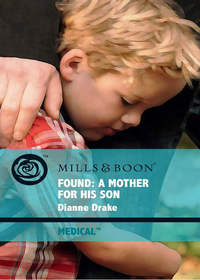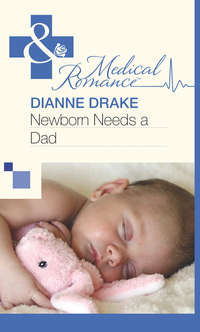
Полная версия
Tortured by Her Touch
Anne jabbed her spoon into the ice cream. “I think he’s equal to it. And I think he’s going to be lots of fun,” she said with a sarcastic grimace on her face to Hannah. “About as much fun as a sticker bush with large stickers.”
CHAPTER THREE
HIS APARTMENT WASN’T much in the way of square footage, but it didn’t matter because there wasn’t much that he needed in this world and that included space. But he did have to admit that his office was everything he could have wanted, and more. It was spacious, accessible. Larger than his apartment, actually.
“You like it?” Anne asked as she followed him in through the door.
“Are you my appointed keeper now?”
“In a way, I suppose you could say that. We’re the only two with offices and treatment rooms at this end of the building, and physical rehab has enough space it’s practically a wing unto itself, so I’m appointed by proximity.”
“Don’t need a keeper, don’t need the proximity either.”
“Not your choice, Marc. This is the way the hospital is laid out and, as it stands, our offices are back to back. If you don’t like it, well …” She shrugged her shoulders. “Too bad. Because I don’t think they’re going to rearrange an entire hospital wing to suit your needs. It is what it is, so get used to it.”
“Look, Doctor, I know you’re probably only following orders, but I’m perfectly capable of managing this department on my own. Tell your brother-in-law that if he believes I need a keeper, he can have my keys back.” He fished his set of keys from his pocket and held them out for her. “Take them. I don’t want this job after all.”
Rather than taking the keys, she merely stood back and laughed at him. “You really are full of yourself, aren’t you?”
He looked like he’d been stung by a bee, the words shocked him that much. “I came here to do a specific job, and I’m good at it.”
“When you don’t let yourself get in the way. Which probably is too often,” she quipped.
“And you know what it’s like?”
“To be you? No, I don’t. I can’t even imagine. But I do know what it’s like to be the new person in the door where everybody’s watching you and waiting for you to mess up. I was there not that long ago, and it was as if every time I turned around someone was staring at me or whispering. Probably because I’m Jason’s sister-in-law who came in here with her own set of problems. The difference between you and me was that I wasn’t so thin-skinned on my way in the door. Nor was I so defensive. I just came to do a job and so far that’s what I’ve done.”
“You’re calling me thin-skinned?”
She shrugged. “Maybe not thin-skinned so much as overly sensitive. You’re adjusting to a new life, where everything is different, and it seems like every little thing bothers you.”
“So I’m either thin-skinned or overly sensitive?”
“Maybe a little. I mean, I had my divorce going on when I got here and it was a struggle not to let it follow me in the door. But I succeeded.”
Marc spun in his chair to see her. “I don’t think you can compare yours to mine.”
“No. I got out in one piece.”
“Out of what?”
“The war. Afghanistan. Three tours. I was a major in the army, which outranks you as a captain.” She smiled. “Just in case you’re interested.”
“You served?” he asked, totally stunned.
“Three times overseas, would have gone back for four. I ran a field hospital.”
“Sorry, I had no idea.”
“Because I don’t wear it as some sort of badge. I just come to work, recognize PTSD when I see it, and go to work trying to fix it.”
“And you think you’re seeing it in me.”
“The bigger question is, do you think you’re seeing it in yourself? See, the thing is, you won’t get fixed, or even helped, if you don’t want to. That’s the deal with PTSD. You have to be willing to accept treatment in order to get past it, or at least know how to deal with it.”
“Well, my injuries are all on the outside,” he snapped, slapping his leg. “Something counseling isn’t going to fix, if that’s what you were going to ask. I healed fine, and I live fine. Better than a lot of the men and women coming back. So save your healing touch for them, Major …” he gave her a mock salute “… because I don’t need it and I don’t need you.”
“But some of your patients will, and I’m wondering if you’ll be objective enough to know which ones. Because they usually don’t ask, Doctor. In fact, part of your responsibility will be to make referrals to me and that, quite frankly, worries me.”
“Why? Don’t you think I can do my job?”
“Honestly, no, I don’t. When Jason brought your name to the board as someone to investigate, I voted against you because everything I’d heard, not to mention everything I’d read, indicated you were still fighting your own demons. But he out-talked me, swayed the voting members over to his side to give you an interview, and I lost. So here you are on a trial basis being exactly the way I predicted you’d be.”
“It’s nice to know who your enemies are.” He arched skeptical eyebrows. “Especially when they make no effort to hide themselves.”
“You’re not my enemy, Marc, and I’m not yours. But I’m not sure you’re capable of being a responsible colleague, either. At least, nothing you’ve shown me so far gives me the impression that you are.”
“Maybe that’s because you haven’t seen me work as a doctor.”
“And maybe that’s because you’ve never worked in physical rehab. According to your résumé this is your first job in that specialty. You’re here straight from your residency.”
“So tell me, how long had you worked in your specialty when your sister’s husband hired you to work here?”
“That’s different. He knew me.”
“But no experience means no experience. Isn’t it all the same?”
“You’re trying to twist my words,” she said, struggling to stay calm.
“What I said was that you got hired based on who you’d been and not who you were. In my opinion, if that’s good enough for you, it’s good enough for me. Unless nepotism carries more weight than skills do.”
“I’m not debating your skill as a doctor. You come with a lot of commendations, including a Medal of Honor.”
“Then what are you debating?”
“Your past, your attitude. A couple of people in rehab with you said you were the worst case in the bunch. Your therapist agreed, and said you fought everything and everybody. She said when someone crossed you, you simply shut them out, and that went for the whole team assigned to you. Yet the people who worked with you on the battlefield gave you glowing praises. Which tells me that the before version of you is the real you and you’re keeping it hidden. Or, in other words, you’re afraid to let it back out.”
“So you have done your homework.” Laughing derisively, he simply shook his head.
“To be honest, Marc, I’ve done a ton of homework on you, starting with your trip back to med school to do a physical rehab residency. Couldn’t have been easy.”
He winced. “It was … fine. I mean, what were my choices? Take a desk job somewhere, teach? I wanted to practice, and this gave me an opportunity. Who better to teach someone like me than me?”
“Maybe someone with more compassion?” Anne snapped.
“You haven’t seen my level of compassion, so it’s not fair of you to judge me. And, no, this isn’t PTSD talking. It’s one angry-as-hell former army medic talking—one who lost the use of his legs and had to change his whole life plan. So I’m not like you, Anne, who had emotional difficulties because I couldn’t cope. If a hysterical outbreak was all it took to get me out of the chair, I’d be happy to become hysterical in a heartbeat.”
She drew in a bracing breath. She was used to being challenged by patients. Happened every day. Their tragedies were greater than hers, their suffering more—something she couldn’t possibly understand, so many of them told her. But she’d been to the very depths of hell, too, and she knew what that felt like. Maybe not in the same way others experienced it, because no two people went through it the same way. But like Marc, she’d had to fight hard to come back. And who knew? Maybe one day he’d finally understand that suffering was suffering, no matter the form in which it came.
“Look, we have a meet-and-greet tomorrow to give you a chance to meet all your new colleagues. I was wondering, since you’re new in town, if you’d like to grab a quick dinner afterward.”
“You’re asking me on a date?”
“Not a date, but I thought that since these meet-and-greets are usually pretty boring, you might appreciate the opportunity to get out of there a little early without looking like some pathetic loser who leaves there alone.”
“Aren’t you the picture of compassion?” he said, his voice perfectly even.
“Just trying to be friendly. That is, if you’re capable of being friendly.”
“I can be as friendly as the next guy when I have to be.”
“I have a degree in psychology as well as medicine, Doctor. Want me to tell you in how many ways that sounded antisocial?”
“You are stubborn, aren’t you?” He actually laughed out loud. “And you think I don’t know?”
“Go ahead, call it what it is … stubborn. I am stubborn, I like it and I own it.”
A hint of a smile crinkled his eyes. “Well, you’ve met your match. My stubbornness is going to put yours to shame.”
“And you’re proud of it?”
“About as much as you are.”
She studied him for a moment and noticed that he’d visibly relaxed in his chair. Was he all bark, no bite? She doubted that. But she also doubted that his bite was worse than his bark. Marc Rousseau was hiding behind his disability, and doing so by lashing out. It was a typical scenario for an atypical man. Somehow, she looked forward to the challenge. No, he wasn’t her patient, but when had that ever stopped her? “OK, then. Tomorrow after the meet-and-greet. Would you prefer Greek or Chinese?”
“I would prefer a bowl of cold cereal, alone.”
“I didn’t hear that as an option, Doctor. So Chinese it is.”
“Chinese,” he muttered as he rolled away from her. “I hate Chinese.”
“Then Greek it is.”
“Hate Greek.”
“Then there’s an all-night diner down the street and I’m sure they serve cold cereal.” She smiled. “See you then, if not sooner.”
What had she just done? Actually, she didn’t have time to think about it on her way to her group session. Every morning was reserved for private patients who were not yet ready to face others, and every afternoon was much the same, except she blocked out two hours after lunch for her group session where anybody was welcome to sit in and talk.
Talking was cathartic. Too bad she hadn’t talked more. If she had, she might not have found herself in the depths of despair after she’d learned about Bill. But that’s where she’d ended up. Too much trauma, too much death, too many patch jobs that just hadn’t been good enough. She’d held up in the field just fine because she’d had a real purpose there, but when she’d come home to face all the things a family practitioner had to face—coughs and sore throats and gallstones—she’d broken in half. That, plus a failing marriage and her whole life had started to decompose.
And it wasn’t like her patients back home had needed her any less than her patients in the field. But what she hadn’t felt was … vital. The divorce had robbed her. So had her medical practice, as she hadn’t felt like she’d made a difference at the end of the day since she’d come back.
Sure, she could have re-upped, but she’d have been assigned stateside this time, doing exactly what she’d been doing when she’d parted ways with the army. So on those evenings when she’d been alone and she’d thought about the direction her life was taking, she’d let her depression out, fretted a little, cried a lot. Until her hands had started to shake and her mind had started to get muddled. Then there’d been missed work and missed days, and weeks that had gone by in a blur because she’d been unable to force herself to get out of bed in the morning.
Oh, she’d known it had been depression. But she’d never attributed it to PTSD. That was for other soldiers, the ones on the battlefield who came home battered either physically or emotionally. No, Anne Sebastian just felt tired and irritable, and she hadn’t wanted to face her days head-on. With family swooping in, trying to get her to do one thing or another. “Get help,” they’d kept telling her. “It’s not an embarrassment to admit you need help.”
Then one day a dear friend from her army days had come to visit, thanks to Anne’s parents. Her friend, Belinda McCall, also an army doc, had admitted she’d had trouble. Hers had been temper, and outbreaks, and crying jags. Her diagnosis—severe depression.
“I’m just going through a bad divorce,” Anne had replied. “And I can control my moods whenever I want to.”
“Can you?” Belinda had asked. “Are you sure?”
Had she been sure? Of course she’d been sure. She wasn’t a weak person. Only a person going through a bad patch.
“Must be a pretty damned bad patch for you to miss work,” Belinda had taunted her as she’d handed her a brochure for a program in Oregon for returning soldiers suffering from stress-related disorders and depression.
Long story short, she’d seen herself in the description—sleeping on the job, listless. Then one day she’d curled up on an exam table and just dozed off in the middle of the day. After the fire rescue squad had knocked her door in, she’d made the phone call. Two years later, with counseling for depression behind her, she’d had her PhD in hand and had reemerged into the world ready to treat soldiers with PTSD like she’d seen in the clinic. So many of them so often misdiagnosed or forgotten. And as luck would have it, she’d landed the job at a little veterans’ rehab clinic in Chicago. One run by her brother-in-law.
It had been a fresh start. What a perfect place to start over!
But was it a good place for Marc to start over? Her demons had been put to bed before she’d got here, but she had a hunch his biggest demons were still in front of him. He’d faced his disability and dealt with it as much as he could on his own. Or as much as he would allow. And he had great credentials as a doctor. So maybe he intended to spend his time behind his work, the way she’d tried doing.
Конец ознакомительного фрагмента.
Текст предоставлен ООО «ЛитРес».
Прочитайте эту книгу целиком, купив полную легальную версию на ЛитРес.
Безопасно оплатить книгу можно банковской картой Visa, MasterCard, Maestro, со счета мобильного телефона, с платежного терминала, в салоне МТС или Связной, через PayPal, WebMoney, Яндекс.Деньги, QIWI Кошелек, бонусными картами или другим удобным Вам способом.








